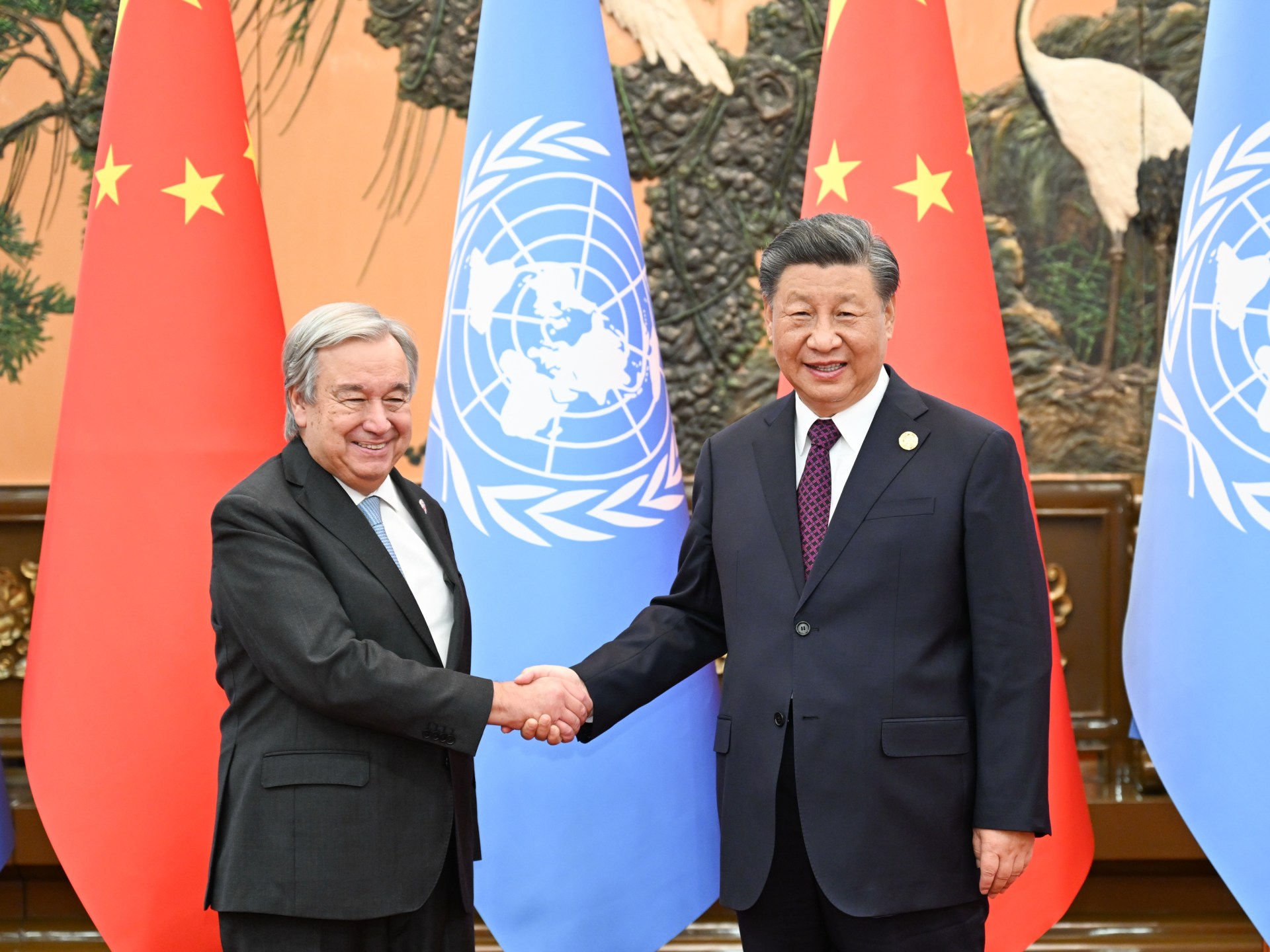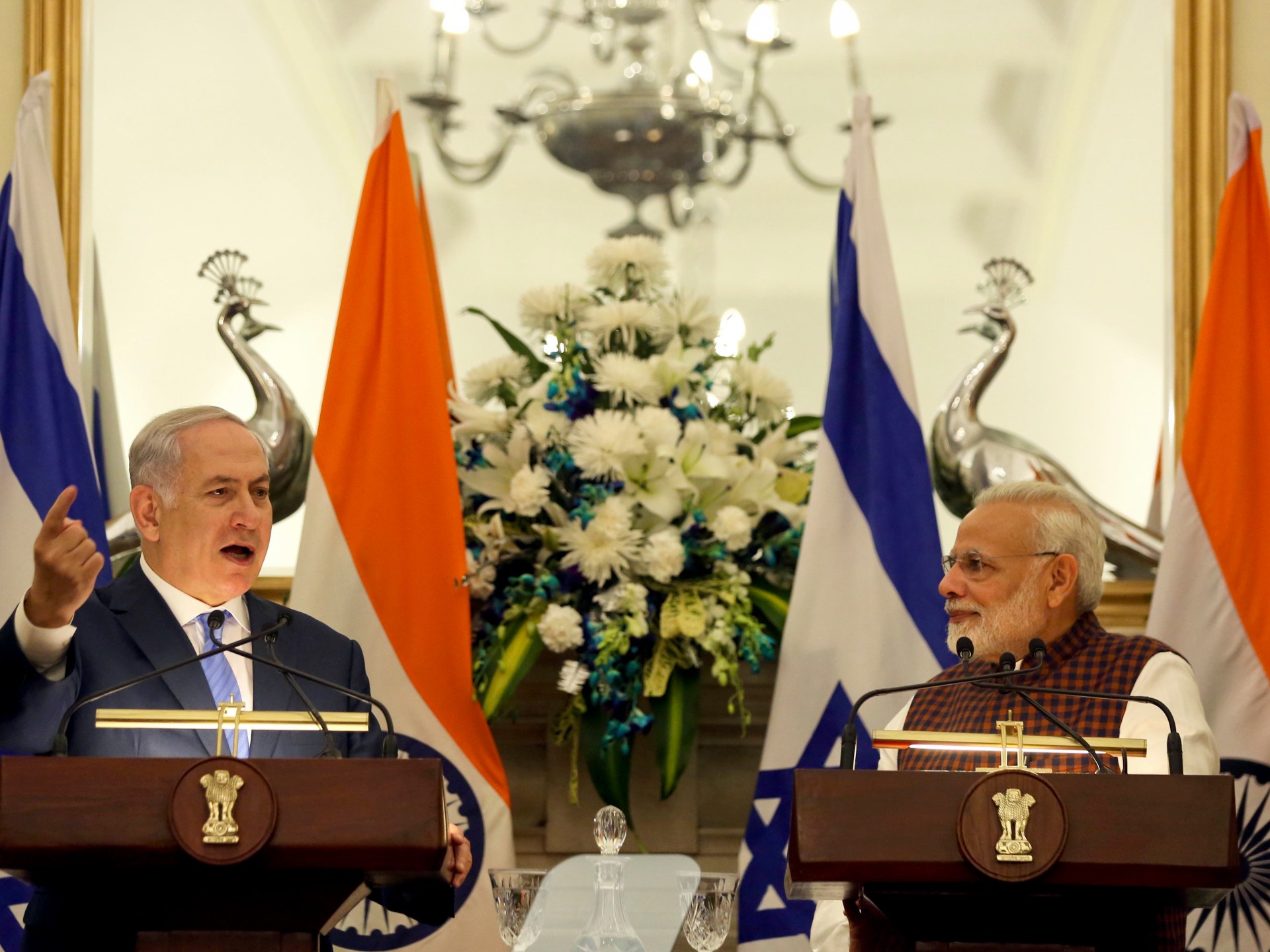Erdoğan’s Participation in the SCO Tianjin Summit and the Trajectory of Turkish-Chinese Relations
On August 31, Turkish President Recep Tayyip Erdoğan was in Tianjin, China, to attend the 25th Meeting of the Council of Heads of State of the Shanghai Cooperation Organization (SCO). Türkiye has begun to regularly attend SCO summits in recent years. President Erdoğan attended the Samarkand summit in 2022 for the first time as president. He then continued the tradition by attending the Astana summit in 2022 and the Tianjin summit this year. With Erdoğan’s participation in the SCO summit, the Turkish media’s coverage of the summit also increased. Especially when browsing news channels, I see that with Erdoğan’s arrival in Tianjin, various news stories and commentators are evaluating the importance of the SCO and the summit. However, as always, Turkish TV channels and news outlets continue to compare the SCO with the EU and NATO while covering SCO news. Comparing the SCO and the EU is like comparing apples and oranges; they are functionally different structures, yet this comparison comes up every year. On the other hand, while some TV commentators point out that there is no complete unity within the SCO and BRICS and that there are internal contradictions, they generally do not mention the rift within NATO. However, even their statement that Türkiye’s participation in the SCO summit is not a sign that it will break away from the West clearly shows how much of a dissenting voice Türkiye is within NATO. Furthermore, there is no mention of the rift between Trump and the EU within NATO following Donald Trump’s election as US President.
Erdoğan attended the SCO summit with a large delegation consisting of Foreign Minister Hakan Fidan, National Intelligence Chief İbrahim Kalın, National Defense Minister Yaşar Güler, Finance Minister Mehmet Şimşek, Energy Minister Alparslan Bayraktar, Industry and Technology Minister Mehmet Fatih Kacır, and Trade Minister Ömer Bolat, and held comprehensive bilateral talks at the summit. Throughout the summit, Erdoğan met with the heads of state of Azerbaijan, Armenia, Iran, Pakistan, Russia, and China for bilateral talks. In general, Türkiye has deep cooperation with SCO countries in the fields of energy, trade, tourism, and investment. In particular, Türkiye has a large trade volume with Russia and China. For instance, during his bilateral meeting with Russian President Vladimir Putin, Erdoğan emphasized Türkiye’s cooperation with Russia in the fields of trade and energy and invited Putin to Türkiye, demonstrating the strength of bilateral relations. At the same time, Russian President Vladimir Putin also emphasized bilateral cooperation and thanked Erdoğan for his mediation and efforts towards peace regarding the Russia-Ukraine War. It should not be forgotten that Türkiye has not strained its relations with Russia since the beginning of the Russia-Ukraine War, taking a different stance from NATO.
In his article titled “A Shared Path to Peace and Justice” published in the People’s Daily prior to his trip to China, Erdoğan emphasized that Türkiye was pursuing peace diplomacy on the Russia-Ukraine and Gaza issues and that China was playing a leading role in establishing a just world. The emphasis on a just world in Erdoğan’s article is always part of the multipolar world discourse. For many years, Erdoğan has used the expectation of a multipolar world order and the emphasis on “a just world” as his own unique discourse, saying that “the world is bigger than five.” While highlighting the same issues in both his speech at the SCO summit and his meeting with Xi Jinping, Erdoğan did not fail to emphasize Türkiye’s geostrategic position as an energy and transportation hub in the Middle Corridor.
Deepening Turkish-Chinese Relations in Recent Years
Erdoğan’s trip to China for the SCO Summit carries significance within the context of deepening Turkish-Chinese relations in recent years. With this visit, Erdoğan visited China for the first time in six years. Erdoğan last made an official visit to Beijing in 2019. The two heads of state last met in July 2024 at the SCO summit in Astana. Since Chinese President Xi Jinping last visited Türkiye in 2015 for the G20 Summit in Antalya, Türkiye has been hoping for Xi Jinping to make an official visit to Türkiye for many years. In fact, President Erdoğan indicated after the BRICS summit in Kazan that Xi Jinping would pay an official visit this year. Xi’s official visit to Türkiye may have positive repercussions for the bilateral relations that have developed in recent years.
There has also been a significant increase in visits to China by state officials and AKP strategists in recent years. Most recently, in June 2024, bilateral relations progressed positively with the visit of Turkish Foreign Minister Hakan Fidan. After a long hiatus, Fidan became the first high-level official to visit Urumqi and Kashgar in Xinjiang. Foreign Minister Hakan Fidan met with Chinese Foreign Minister Wang Yi and conveyed the messages that “Türkiye fully supports China’s territorial integrity” and “Urumqi and Kashgar are Turkish Islamic cities. They are a bridge between China and the Islamic world. The unity of the people is our wealth.” During his visit to China, Fidan also expressed Türkiye’s desire to join BRICS, and President Erdoğan emphasized his wish to attend the BRICS summit in Kazan. In our meetings with various diplomats and businesspeople following Fidan’s visit to China, they emphasized that China had a positive impact on Turkish businesspeople. Direct flights between Urumqi and Istanbul even began after Fidan’s visit to Xinjiang. Then, in June 2024, he visited the capital Beijing with AKP Deputy Chairman Efkan Ala and a delegation, and a “Memorandum of Understanding on Strategic Cooperation” was signed between the AKP and the CPC. In November 2024, Finance Minister Mehmet Şimşek visited Beijing. In February 2025, a delegation led by Deputy Minister of Trade Mahmut Gürcan visited Urumqi, the capital of Xinjiang, and a Turkish Pavilion was opened in the Urumqi Free Trade Zone. On the other hand, it should be noted that Türkiye’s former Ambassador to Beijing, İsmail Hakkı Pekin, played a positive role in the development of Turkish-Chinese relations and was well-liked by the Chinese. For instance, Ambassador İsmail Hakkı Musa stated in an interview with Global Times that “Türkiye does not subscribe to anti-China rhetoric and hopes to enhance economic cooperation with China.”
Conclusion
All countries that are members and dialogue partners of the SCO are in favor of establishing a more just and multipolar world. In this regard, they follow a political line consistent with Türkiye’s interests and Erdoğan’s rhetoric of a fair world. Many countries, such as Russia, China, Iran, and India, are subject to Western and US tariffs. In this regard, the establishment of a more just financial system is the most significant demand. Although there are contradictions among the member states of the organization, they find common ground on the establishment of a more just order and financial system despite their differences. In particular, Chinese President Xi Jinping’s message in his speech that we should seek common ground while putting aside differences. In this case, it shows that they have put their differences aside and found common ground in multipolarity. On the other hand, countries such as China and India are both global production centers and energy and mineral-rich countries like Russia, Iran, and Kazakhstan, and Türkiye has deep relations with these countries. However, Türkiye’s predicament between BRICS and the SCO on one side and the EU and NATO on the other should not be left to Türkiye’s special position, historical alliance tradition, and the AKP’s indecisiveness in foreign policy. Türkiye should adopt a strategy of gaining effective positions in the SCO and BRICS institutions by leveraging its deepening relations with Russia and China in recent years and ensuring a solid position in the emerging multipolar world.
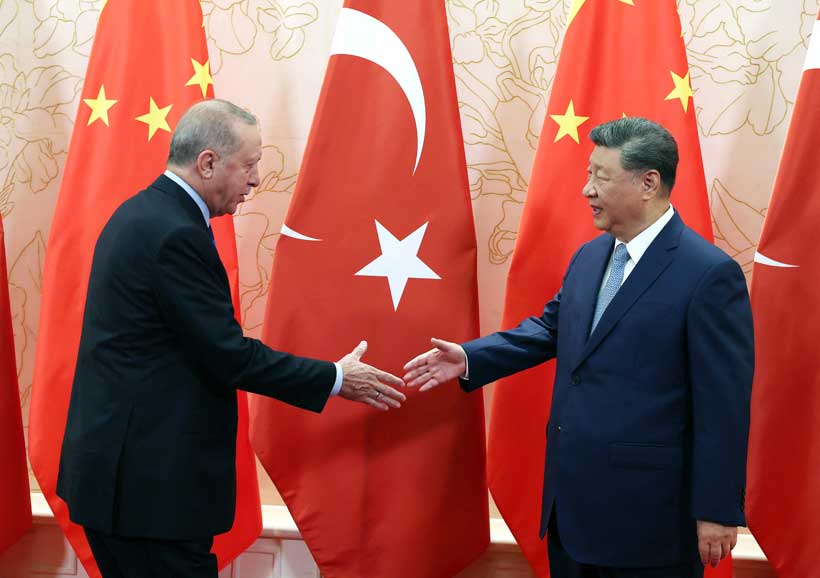
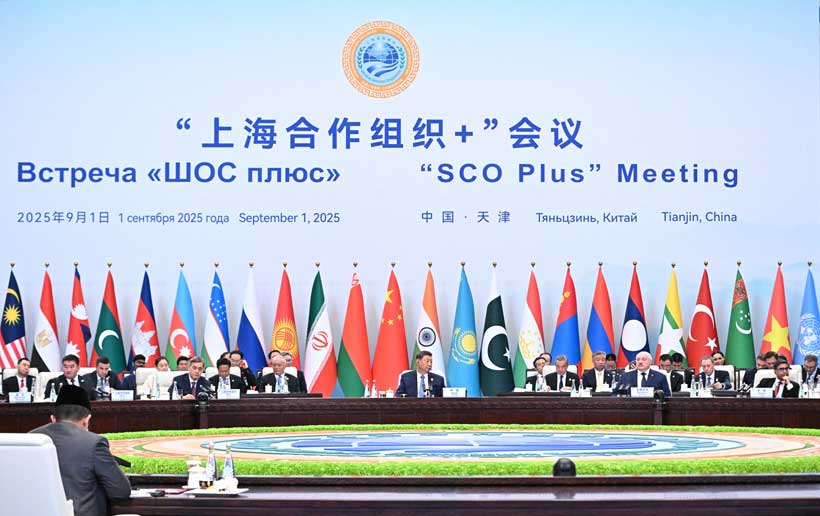
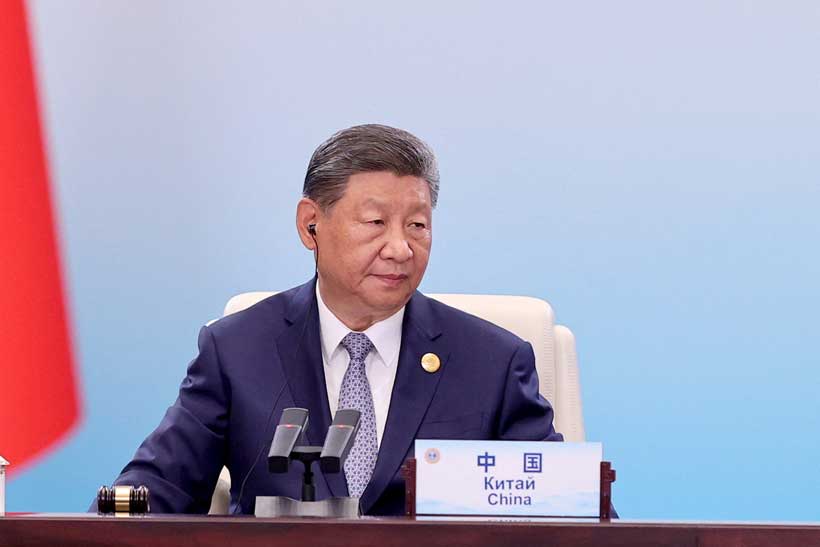

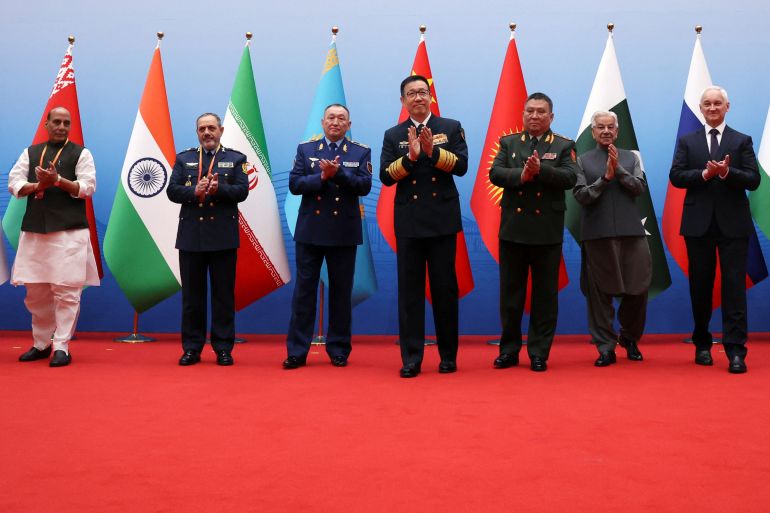
![Police officers stand guard in front of the Tiananmen Gate, in an area temporarily closed to visitors due to construction, in advance of a military parade marking the 80th anniversary of the end of World War II, in Beijing, China, on August 20, 2025 [Florence Lo/Reuters]](https://www.occasionaldigest.com/wp-content/uploads/2025/08/2025-08-25T084236Z_2025718761_RC2WAGAF3U1R_RTRMADP_3_WW2-ANNIVERSARY-CHINA-ARMS-1756523046.jpg)
